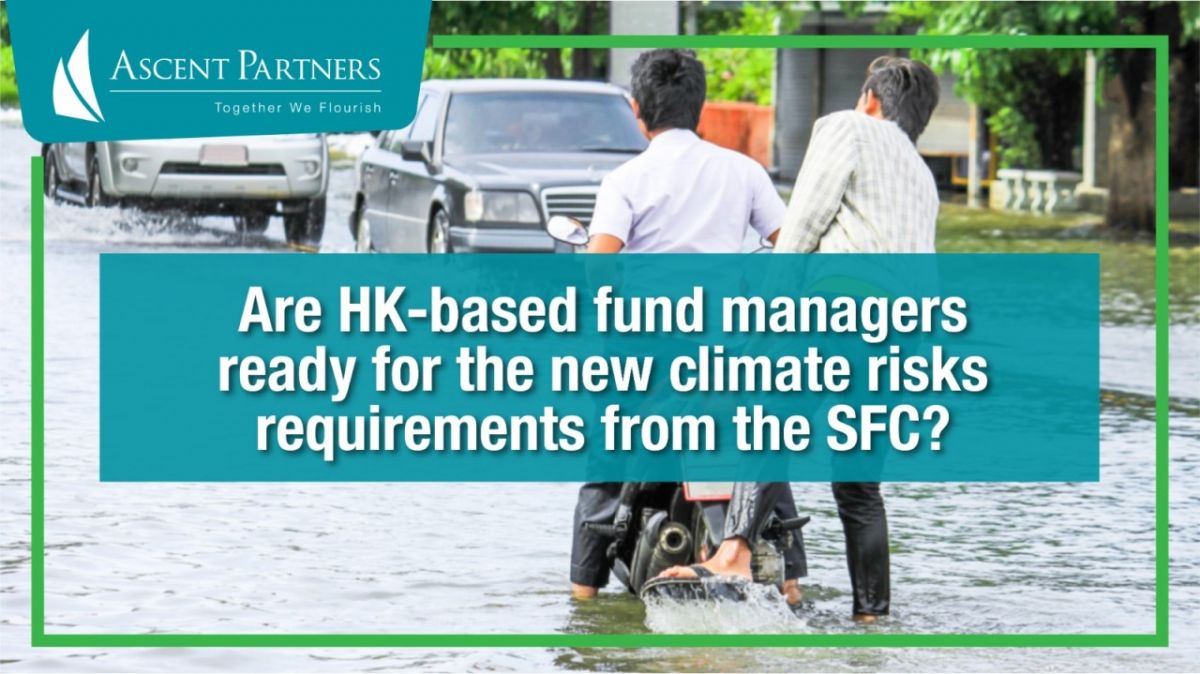
Are HK-based fund managers ready for the new climate-risk requirements from the SFC?
One year on, are Hong Kong-based funds ready for the changes to the Fund Manager Code of Conduct(FMCC)?
As Climate Risk escalates across the World, Hong Kong’s Securities and Futures Commission, on August 20, 2022, asked funds to enter a new stage of sustainable fund management.
The general amendments to the FMCC seek to implement the recommendations of the Task Force on Climate-related Financial Disclose, or TCFD’s.
This brings Hong Kong into line with many other financial centres around the world, but is Hong Kong ready for this?
According to the regulations, managers of “Collective Investment Schemes”, or “funds”, must adhere to a set of requirements that can be basically outlined as follows:
· Ensuring board and management-level oversight of climate-related issues;
· Identifying climate-related risks relevant to their investment strategies;
· Considering climate-related risks in risk management procedures;
· Publicly disclosing how they manage climate-related risks; and
· Apply appropriate tools and metrics to assess and quantify climate-related risk
Larger funds are subjected to even more stringent standards to reflect their ability to more actively address climate-related risks, including collecting and disclosing Scope 1 and 2 of the greenhouse gas emissions data (GHG), set by the SFC.
How will this play out in Hong Kong?
Hauman Yeung, Director and Head of ESG Services at Ascent Partners Hong Kong, believes that some of the smaller funds may struggle to comply completely initially.
“They have no real experience in the area, and the one-year warning is quite tight. We may see many struggle with the requirements initially, but eventually, it should, and will, become an important pillar in their investment strategy”, he said.
The SFC has afforded fund managers some flexibility in the area, however. Large fund managers are allowed to utilise external data from external statistics and official sources in the short term to meet their obligations.
“But large funds will also need to develop a plan to implement scenario analysis within a reasonable timeframe, Hauman added.
However, the smaller players may be left behind as complying with the new regulations bite into costs and ultimately, profit margins.
Let’s see how this plays out.
